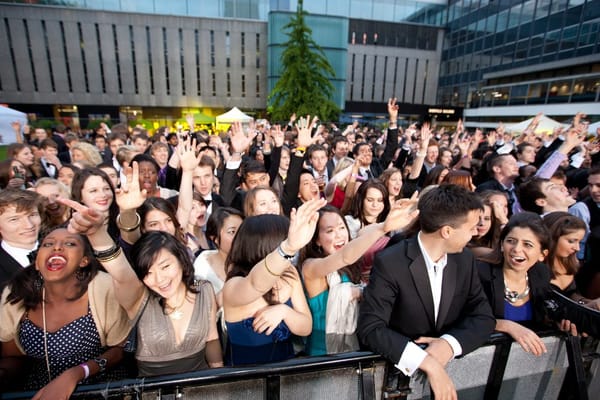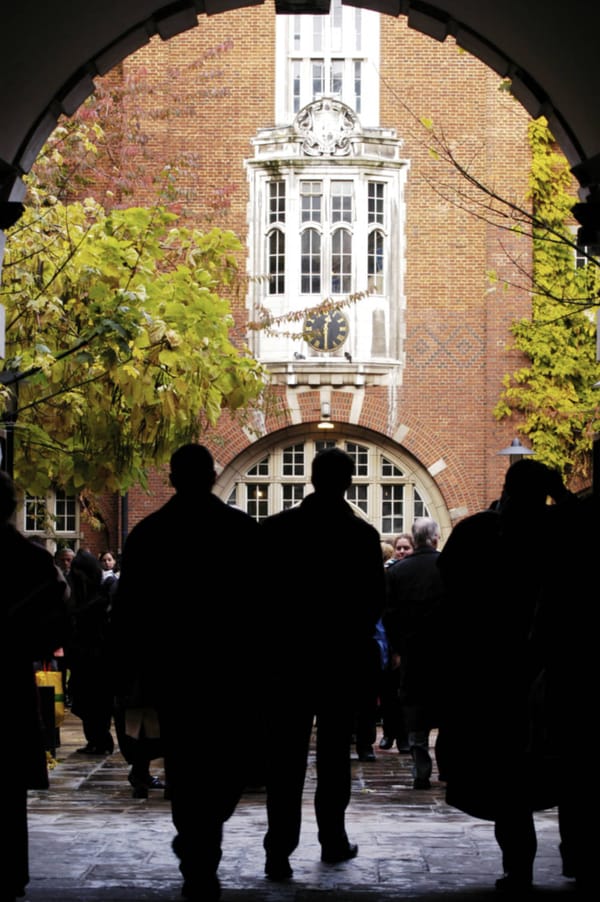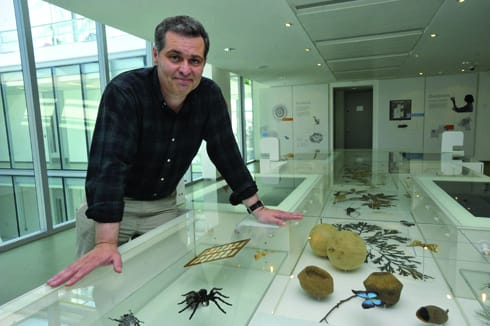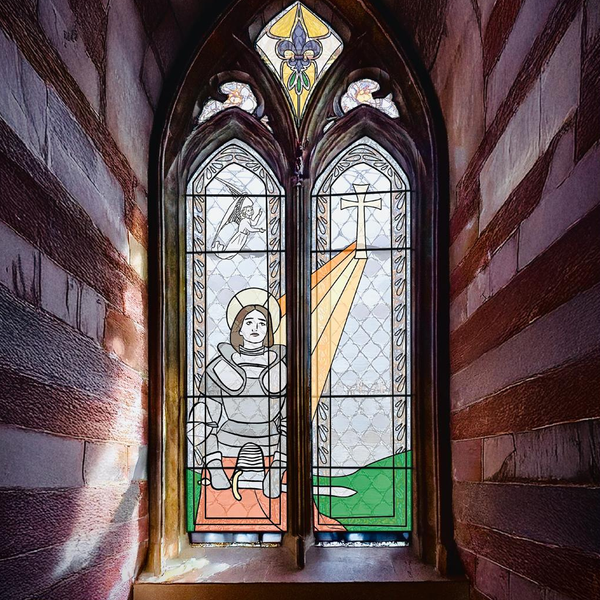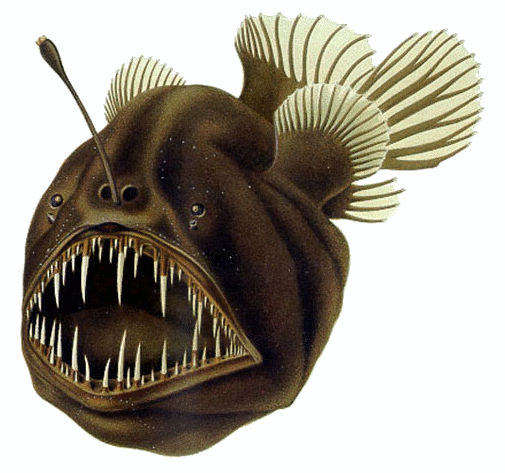An eloquent spokesperson for science
Kadhim Shubber meets CaSE director and Imperial alumnus Imran Khan
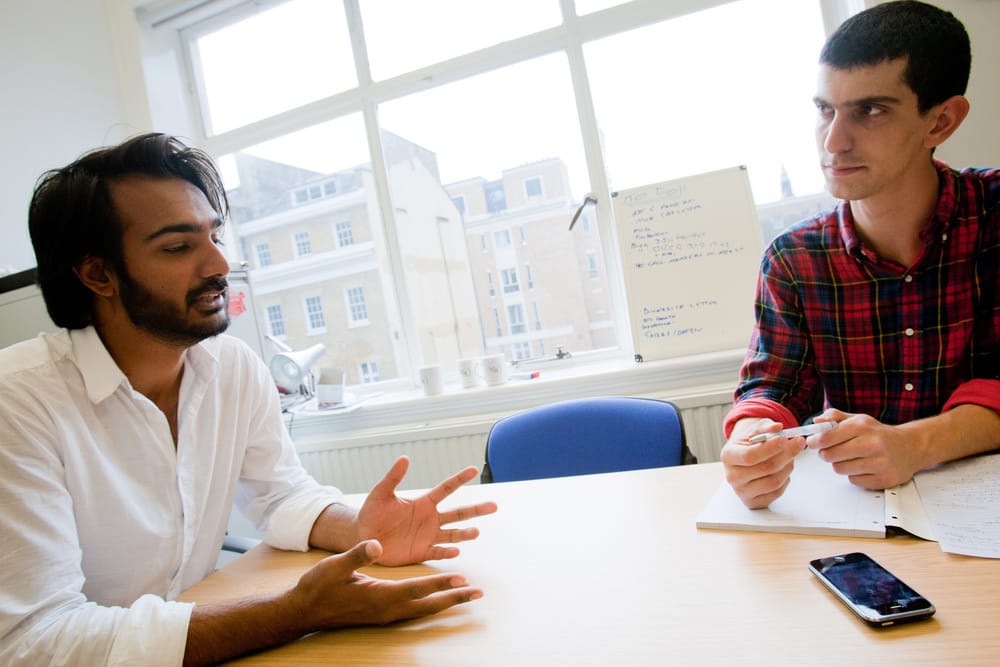
I’m standing outside the offices for the Campaign for Science and Engineering (CaSE) on Gordon Square, near Euston Square tube station, trying to stop sweating (summer showers tricked me into wearing a coat...) when I notice something. While our university recently took the controversial, and in my opinion foolish, decision to cut ties with CaSE, their offices are actually situated in an UCL building. Our closest London competitor embraces this influential lobby group, “puts their money where their mouth is” as UCL vice-provost David Price puts it, and we do the exact opposite. I’m not sure whether to be surprised or not.
Once I’ve cooled myself down, I go inside and I’m buzzed through into CaSE’s modest office. The two rooms seem to perfectly capture a sense of ‘punching above your weight’. CaSE is an organisation that has successfully lobbied the government at the highest levels, spearheaded national campaigns, and won front page headlines on major national newspapers; and all from an office that’s a little smaller than the Union bar.
Imran Khan, the director of CaSE, rather shines in this small space. Policy papers are stacked around his office, and there is a heap of placards from the Science is Vital campaign, which helped spare science funding from the worst of the cuts back in October, stacked up against one of the walls. He’s extremely well spoken, possessing the rare ability to speak quickly in properly constructed sentences without ‘umming’ and ‘ahhing’, and also disarmingly charismatic – not characteristics that one would immediately associate with an Imperial alumnus.
He studied on Imperial’s Science Communication masters course in 2007/08 and during his time at Imperial, wrote articles for Felix and had a couple of shows on IC Radio. Gareth Mitchell, who lectures on broadcast and written journalism on the course, remembers him as enthusiastic, saying that he “really threw himself into the course”. He calls Imran “an aspirational figure” for students on the course today. “Even though he is doing really well for himself, he still comes back to Imperial, to give seminars to our students, to give them direction and advice,” says Gareth, “he has had a big impact by being a role model for students interested in science policy”.
"Even though he is doing really well for himself, he still comes back to Imperial, to give seminars to our students, to give them direction and advice" Gareth Mitchell, Imperial lecturer
As we start our interview it quickly becomes apparent why. He has a deeply technical grasp of the issues affecting science and engineering research in the UK, but also the skill to explain them in an easy-to-understand manner. Why don’t politicians ‘get’ that investment in science is important, I ask him. He rejects my premise, “I think that is a bit of a misapprehension. All the political parties understand that science and engineering is really important.” But the real question, he says, is how important is it in relation to other challenges.
A perfect example of this was shown the Comprehensive Spending Review (CSR), where CaSE and others argued successfully that research funding needed to be prioritised and protected, which it was to an extent. Is rising inflation chipping away at the ‘generous’ 10% cut that we were given? Yes, he says, but he also points to U.S. research that shows that inflation for some scientific research has often been higher than general inflation, warning that we are still yet to see “how stringent these cuts are going to be.”
I ask him about the 50% cut to research capital expenditure, the ‘sting in the tail’ after the success in the CSR. “You had people saying ‘oh we’re fine’ and then reality hit.” He says that the science community has a job to do in not only adapting to the cuts by sharing more, “it’s not like the old days, we can’t just compete against each other, there’s got to be a mixture of competition and collaboration”, but also in convincing the government of the folly of the capital expenditure cuts: “[We’ve got to say] actually here’s the impact of these cuts, here’s the world class reserach that’s not being done, here are the world-class scientists that we’re losing to Singapore or the States because they can afford the equipment that we can’t.”
Although I’m enjoying his careful deconstruction of the research landscape, we both know that the reason that I’m there is to discuss Imperial’s decision to leave CaSE. Given the the successes that scientists have won since the last General Election, but also the huge challenges that we continue to face, it seems a peculiar time for Imperial to be disengaging from the science community in this way. Does he think Imperial can speak for itself, I ask him.
“All institutions will want to speak for themselves. UCL are very kind in that they’re not only members, but they also house us here. However, it’s not as if all their science lobbying comes through CaSE,” he says. But Imperial doesn’t operate in a vacuum, he goes on to argue: “What [Imperial does] impacts of the rest of the community, and what the rest of the community does impacts on Imperial.”
The only other institution to end its subscription to CaSE since the last General Election is the British Library, which given their financial problems Imran says “he would have been astonished if they had stayed on.” Imperial on the other hand recently emerged from its ‘phoney war’, so called by the former Chief Operating Officer Dr Martin Knight because it had come through the financial crisis with a £40 million surplus. During the same period, around 20 new members have joined CaSE. “I think if you just look at those numbers, 20 new members vs. one drop out excluding the British Library...” says Imran, who pauses before adding, “[The decision] surprises me.”
"We left no stone unturned. Everything that we could do, we did. We lobbied everyone from the Prime Minister down" Imran Khan
There’s no resentment or anger towards Imperial, however. This is partly pragmatism, “We’re a tiny organisation, we can’t afford to stick our noses up at Imperial”, but also a focus on what is important. Of course CaSE will still need to engage with Imperial, and Imperial staff and researchers, even if it isn’t as straightforward now – ”you can’t do anything related to science communication or science policy in London without dealing with Imperial at some point,” he told me on the phone before the interview.
And of course there’s the personal connection to Imperial. He remembers being part of a very close-knit department and says that he loved being close to the Science Museum and the V&A. He speaks very highly of the Science Communication and Science Media Production courses, saying that they are “a real training ground for science communication policy professionals.”
When I met his former lecturer Gareth Mitchell, he was setting up the IC Radio studio for his current students, much in the same way that he would have done for Imran when he was here. He says that he finds students initially start out with a strong interest in the media side of science communication, but more and more get drawn towards the policy side, towards directly improving the state of science through influencing government, and other institutions’ decisions. He says that Imran followed a similar path. It’s obvious when you meet Imran that he could have had a go on the media side, he’s got the charisma for it.
But when you hear the passion that he’s got for the work that he does, I’m happy that, in the nicest possible way, he’s not on our TV screens. It’s while we’re talking about whether Imperial can lobby on its own. He points to the CaSE’s work during the ‘Science is Vital’ campaign: “It’s not a scientific experiment, we can’t run it again and say here’s the difference that we made, but what we can say is that we left no stone unturned. Everything that we could do, we did. We lobbied everyone from the Prime Minister down. We lobbied civil servants, journalists, the research community, people on the streets. People who weren’t scientists turned up [to protest] to make sure that the UK [continues] to lead the world in research.”
He adds, “Of course that will have all benefited Imperial, I hope,” but I don’t pick him up on what could be the understatement of the year.

